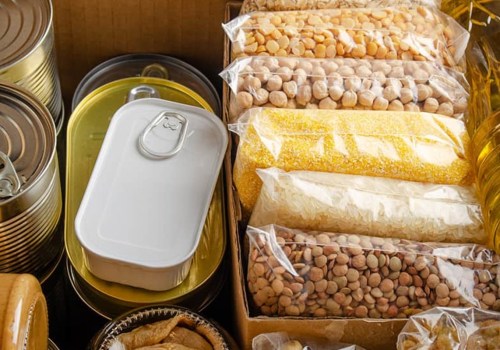. It is an elaborate system required by the global community to maintain the safety, sustainability and safety of food. Although it is designed and programmed to work without errors, this cannot always be avoided. The food supply chain is important because it is what helps meet consumer demand for high-quality food products.
Participants involved in food production ensure safe and sustainable food production. This is what consumers are looking for when it comes to their food and their executive orders. Maintaining food safety is a fundamental part of the global supply chain. Food security is “the state of having reliable access to a sufficient quantity of nutritious and affordable food.
As such, food security has declined dramatically in many developing countries. The pandemic could alter the ability to provide nutritious food to some of the world's most exposed populations. Even in the U.S. In the U.S., supply chains can be disrupted, as is the case with the meat industry.
We will analyze the impact of COVID-19 on food security and the supply chain, and measures to mitigate those risks. Jr (201), “Use of quality management systems for food traceability”, Journal of Industrial Technology, vol. Therefore, organizations in India are going to rethink their megacenter supply chain models in order to manage greater variety and faster transitions within the food supply chain. Collaboration is becoming more of a necessity than an option, despite some barriers that impair coordination between companies in the food industry around the world.
A food mile refers to the distance over which food is transported during its journey from producer to consumer. Using the principle of intellectual property, the FSCM for the handling, movement, storage and delivery of food could be transformed into efficient and sustainable logistics worldwide. The proposed framework relates to the economic performance of the food supply chain, which corresponds to the organization, structure and practices of the entire supply chain. The purpose of this article is to review food supply chain management (FSCM) in terms of systems and implementations, so that the observations and lessons from this research may be useful to academic and industry professionals in the future.
In table II, it can be seen that the EU pays close attention to the traceability of food, where people do care more about the safety and quality of food. Some traceability systems only collect data to track food down to the minute of the production or logistics trajectory, while others only track superficial information, such as over a large geographical area (Dickinson and Bailey, 200). With the increase in technological trends (see Restaurant Technology Trends) and improvements, there is a greater demand for fresh and safe food. Big data analysis can help food companies make graphical decisions with more accurate data entry by extracting hidden and invaluable information or knowledge that could be used in their daily operations.
The European Commission launched a food technology innovation portal to apply innovative technologies, such as biotechnology, nanotechnology and information and communication technologies (ICT), to help food manufacturers offer more healthy, safe and natural foods (European Commission, 201). It can be seen that, from this framework, collaboration in the supply chain is of vital importance and some limitations arise, such as time and uncertainty, due to the nature of the agri-food industry. After that, the right technologies can be chosen to develop solutions for the company or parties involved in the food supply chain. .







Leave a Comment